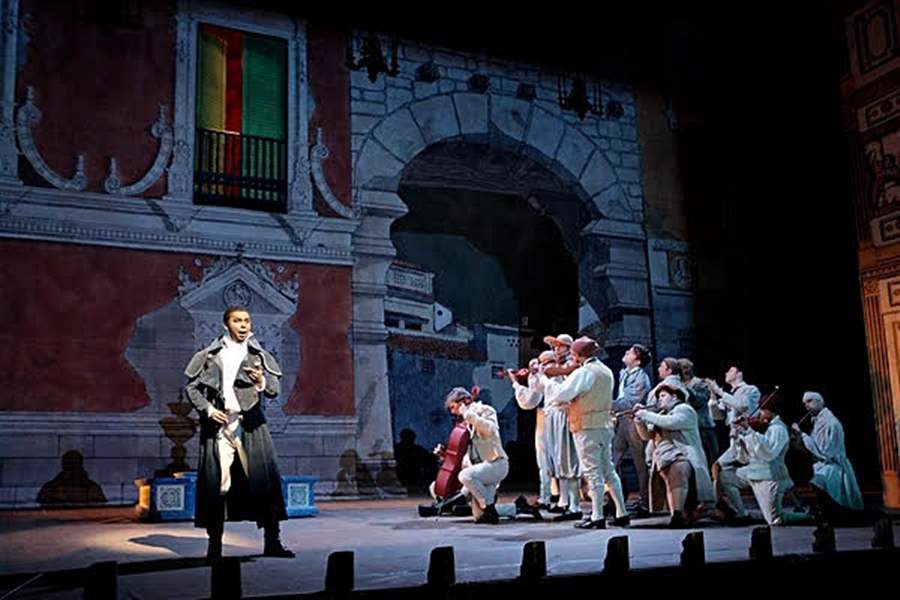Victor Robertson, who returns to the role of Count Almaviva in Opera Carolina’s presentation of Gioachino Rossini’s “The Barber of Seville,” thought he would have to retire the character.
“I thought I was not going to do this role ever again,” Robertson said. “I was in a serious motorcycle accident in 2010, and I cracked my face. I almost needed a plate in my lower jaw. For about a year, maybe a year and a half, I could not sing with the agility needed for Rossini operas. It was just difficult. I kept trying to fight through it, but it was very, very hard. I thought that I was just going to have to put this role down, because it’s so agile vocally. I got back on it, and it’s actually better than ever now. I just needed to heal.”
In “The Barber of Seville,” which runs Oct. 22 at 8 p.m., Oct. 27 at 7:30 p.m. and Oct. 30 at 2 p.m., Robertson portrays a nobleman who goes through several adventures to win the heart of the woman he loves. He also struggles with coming to terms with the way society interprets his title.
“He’s this young guy who hasn’t necessarily accepted his family line,” Robertson said. “He wants to sneak away from it. He wants to disappear. He’s fallen in love with Rosina, who he has seen from a distance. He knows that his title as a count could be trouble for him to be with somebody who is not of nobility, which she actually is. We find that out at the end of the opera, but he didn’t know that while he was pursuing her.”
Robertson goes through multiple costume changes as the count portrays several people in his pursuit of Rosina.
“Obviously he knows that his blood line can be a bit intimidating, and maybe not even socially accepted to marry anyone outside of it,” Robertson said. “He has a lot of heart and he is very idealistic. He goes through many embarrassing episodes to win her heart. He really looks goofy, and he puts himself out there to get her.”
Through humor, Robertson’s Count Almaviva reminds the audience to go for it, whatever it may be or how crazy it seems.
“That’s the beauty in Almaviva,” Robertson said. “He steps outside of his comfort zone, and he becomes a drunken soldier. Just to become a soldier is such a departure [from nobility], but to become a drunken out of control soldier and then to become a goofy poor music teacher. I change costumes like five times. Out of any opera I’ve done in my 12-year career, this is the most costume changes. It’s a gorgeous production.”
While tennis was Robertson’s first love, he left North Greenville University in South Carolina after his sophomore year to pursue other interests. He ended up studying voice at Georgia State University.
“I just burnt out after my sophomore year,” Robertson said. “It was just too much.”
However, the transition from spending six hours a day training as a tennis player to an opera singer proved simple. Since both specialties highlight the work of the individual, both require accountability.
“All of the work you put in by yourself shows up in a match or on stage,” Robertson said.
Now, Robertson plays tennis for fun and studies the catlike movement of champions like Roger Federer. While their stages differ, both leave it all on their respective stage.
“There is no one to hide behind,” Robertson said.


